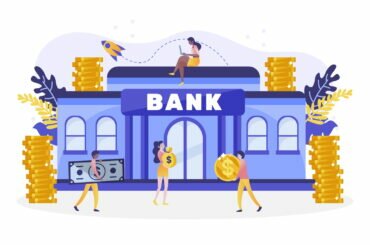Social media has gained massive popularity after the invention of blogging. LinkedIn and MySpace were just some of the early leaders. By the mid-2000s, Facebook, Twitter, and YouTube became undisputed leaders in the industry.
Today, social media is an active player in helping people and businesses. We use it to connect, build communities, and share knowledge. Many people also use social media to push social and political agendas and create awareness on important issues.
However, whether we use it to promote our businesses or raise funds for a positive cause, social media also has a bad side. Cyberbullying and data harvesting are just some of the problems plaguing social media platforms. Politicians are also using their social media influence to fuel hatred and misinformation. Other organizations may also use these platforms to perpetuate criminal activities such as money laundering and terrorism.
The problem? Third parties control nearly all of the social media platforms that currently exist. These are basically the owners of those particular platforms and their management staff. Based on the adverse outcomes associated with controlled outlets, many people are considering an alternative.
What Are Decentralized Social Platforms?
Decentralized social platforms are largely unmoderated. They run independently on blockchain-based servers instead of a business-owned centralized server. Existing examples of decentralized social networks include Steemit, Mastodon, and Minds.
These platforms use blockchain technology, which can store data in distributed servers across the world. This leads to transparency since anyone can view data in real-time on the network. Furthermore, decentralized social platforms give users more control and autonomy.
It’s easy to set up a social network and determine how it works. Unlike centralized avenues, where a corporation monitors all content, a decentralized platform allows the founder to establish terms of acceptable conduct for the site.
Radical Shift From Controlled Social Platforms
Current trends show that many people are opting out of social media. Many reasons have led to this, including negative mental health effects and overall mistrust of the platform. Many users have begun to realize that social media platform owners have unlimited power over their information.
Against this backdrop, there’s a push for decentralized social media that will give power back to the users. Most social media profiles are linked to users’ e-mail addresses, phone numbers, and other critical personal data. And where data is involved, there’s likely to be a breach.
A decentralized system will separate users’ accounts from their personal information. This will eventually minimize security breaches often witnessed in centralized platforms like Facebook, Twitter, and others. Using blockchain technology will create a transparent system with real profiles while protecting users’ sensitive data.
Benefits and Downsides of Decentralized Social Platforms
User Control, Free Speech, and Censorship Resistance
On major social media sites, data is left in the hands of corporate entities. A few people decide the rules of engagement. This eventually reduces the space for free speech while increasing censorship among users. While a platform might ban what it considers dangerous or hateful, it could still infringe on free speech ideals.
On the other hand, a decentralized social platform will enforce independence and more user control. Users have control over their data and the content they generate. No third party can censor or remove any user-generated content.
However, there is a downside to this freedom. A decentralized social platform would allow hate groups and cybercriminals to execute their illicit deeds too. While individual users can block such activities, they cannot prevent them from using the network.
Personal Data, Privacy, and Security
Following user concerns about control of their personal data, Europe introduced the General Data Protection Regulation (GDPR). GDPR recognizes users as “data controllers” and social media companies as “data processors.”
According to the GDPR definition, users own their data. Companies are compelled to give users more control over their personal data. At least in Europe, failure to follow the GDPR guidelines attracts a penalty.
Decentralized social networks provide another solution to data privacy and security. These platforms allow users to create profiles without the need to link to actual personal information. Additionally, these platforms use cryptographic public keys for account security instead of depending on a single organization for data protection.
From a data security perspective, this can create numerous advantages; however, this also poses some challenges. For example, if a decentralized social media platform shuts down due to a lack of funds, users could forfeit their data and connections. While these platforms do not keep records of personal information on servers, administrators still have access to users’ private messages if they are unencrypted.
Economic Neutrality
Another important aspect of decentralized social networks is their promotion of economic neutrality. Such platforms aim to liberate themselves from invasive advertising and the risk to privacy associated with it. Federated platforms often utilize new forms of monetization, such as cryptocurrency, to remain solvent.
For instance, Steem pays users for creating or curating content. This gesture motivates users to focus on quality. On the other hand, Steem gets monetary support from investors who believe the platform will increase in value with time and become profitable.
Even so, this also comes with a downside. Many people still don’t know much about cryptocurrency and how it operates. This might bar many users from joining such platforms.
Final Thoughts
Judging by the benefits decentralized social platforms have to offer, they are likely to draw more users in the coming years. When this happens, existing platforms, which are centrally controlled, may have to adapt user-centric principles or become more ethical. Even so, fully decentralized social media would be difficult to scale. This might cause some of them to degenerate into darknet hubs that only serve the whims of the minority who enjoy radical content.





